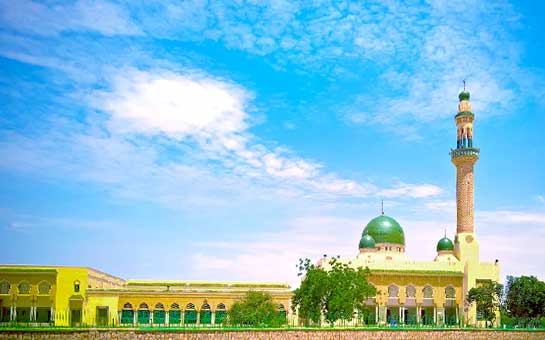Niger is a beautiful fusion of Arab and African culture shaped by the Saharan trade routes. Take a trip to this West African nation to immerse yourself in its colorful markets, winding streets, and attractive houses.
What continue to attract travelers to Niger are its ancient sites, thriving wildlife, festivals, and friendly citizens. If you’re planning to visit, be sure to purchase travel medical insurance as protection against unexpected accidents, illnesses, injuries, or mishaps.
Niger Travel Medical Insurance for International Travelers – FAQs
A desert country with the sweltering heat beating down on you will leech energy. Being exposed to too much heat can make you fall ill. Taking precautions and investing in medical insurance will save you money and inconvenience.
Do I need travel medical insurance for Niger?
Legally, no, it is not necessary. But, the risks of being in a desert country still recovering from internal strife should be a good enough reason to buy medical insurance.
Why buy travel medical insurance for Niger?
The risks are many, and you never know which of them might affect you. Buy travel medical insurance to compensate for any losses you might incur after falling sick or getting injured. A comprehensive medical insurance plan will include medical evacuation.
Things to Do for Travelers in Niger
Speaking French will ease communication difficulties in Niger. Although not spoken by all, it is the language spoken by the Niger government.
- Air and Ténéré Natural Reserves: This is the largest protected sanctuary in Africa, which is an important Saharo-Sahelian ecological hotspot. The volcanic Air Mountains and the surrounding dunes shelter a delicate ecosystem. Bask in the desert landscape and indulge in animal sightings here. This is a designated UNESCO World Heritage Site twice the size of Switzerland.
- The Dabous Giraffes: Discovered only in 1997, the life-sized engravings of two giraffes date back to somewhere between 6000–8000 B.C. You need to climb a boulder to see this rock engraving. The giraffes take center stage because of their sheer size and realistic appearance. There are many other engravings on the site, many of them animal and human forms. There are also some engravings in the Tifinâgh script here.
- W National Park: The park is under the governance of three countries: Benin, Niger, and Burkina Faso. A UNESCO World Heritage Site, it is home to teeming wildlife. Avoid visiting during the rainy season (June to September), as park accessibility is difficult during that time. Winter is the best time to visit for good animal sightings. Try the four-wheel drives, guided treks, and riding dugout boats. They are a great way to go sightseeing for animals here.
- Niamey: On the bank of the Niger River, the capital city is a good place to shop. Check out the Grand Mosque, Cathedral, and the museum. Having a vehicle will make it easier to get around the city. Grande Marche is one of the best markets in West Africa. It sells everything under the sun, and it's a great place to seek souvenirs and supplies.
- Ayorou: A small town in Niger near the Malian border, it draws tourists for its hippopotamus sightings and animal market. Whatever you might have missed in the capital is available here. Hotels arrange for pirogue rides here to watch the hippopotami. Alternatively, you can go for local boat rides, but you need to bargain well. Book the trip depending on your tolerance for high temperatures. You wouldn't want to miss the vibrant Niger festivals, Cure Salee and Wodaabe Gerewol.
Travel Risks for International Travelers in Niger
Western extremism has been easing in the region. Tourism is slowly picking up in Niger, but some risks do still exist.
- Government permission: Travel to Niger is off-limits for citizens of some nations, so check before planning your trip. Going against the government advisory and taking your trip anyway will make it difficult to make an insurance claim if needed. The insurer will have trouble providing emergency relief, as will your home country.
- Health: Make sure all of your routine vaccines are up to date. Make sure to get the vaccine for Yellow fever, also; although not required, it is for your own safety. Aside from these, vaccines for typhoid and hepatitis A would be a good idea. Prescription pills protecting against malaria for your duration of stay would be a smart precaution. Have fresh food hot from the oven, and avoid drinking tap water.
- Scammers: Commercial scams are possible on the continent. Any offer that seems too good to be true usually ends up being a scam to con you of your money. Don't fall into temptation, and stick to trusted places and sources of information and guidance.
Rely on your senses, and don't get swayed by scams. Stay alert, and don't be too adventurous, which might land you in trouble.
Before You Travel to Niger...
Check the government advisory for travel restrictions (if you haven't already). We wish you a safe trip to the sandy glory of Niger.
Do make sure you have your passport, visa, and proof of yellow fever inoculation within close reach.

